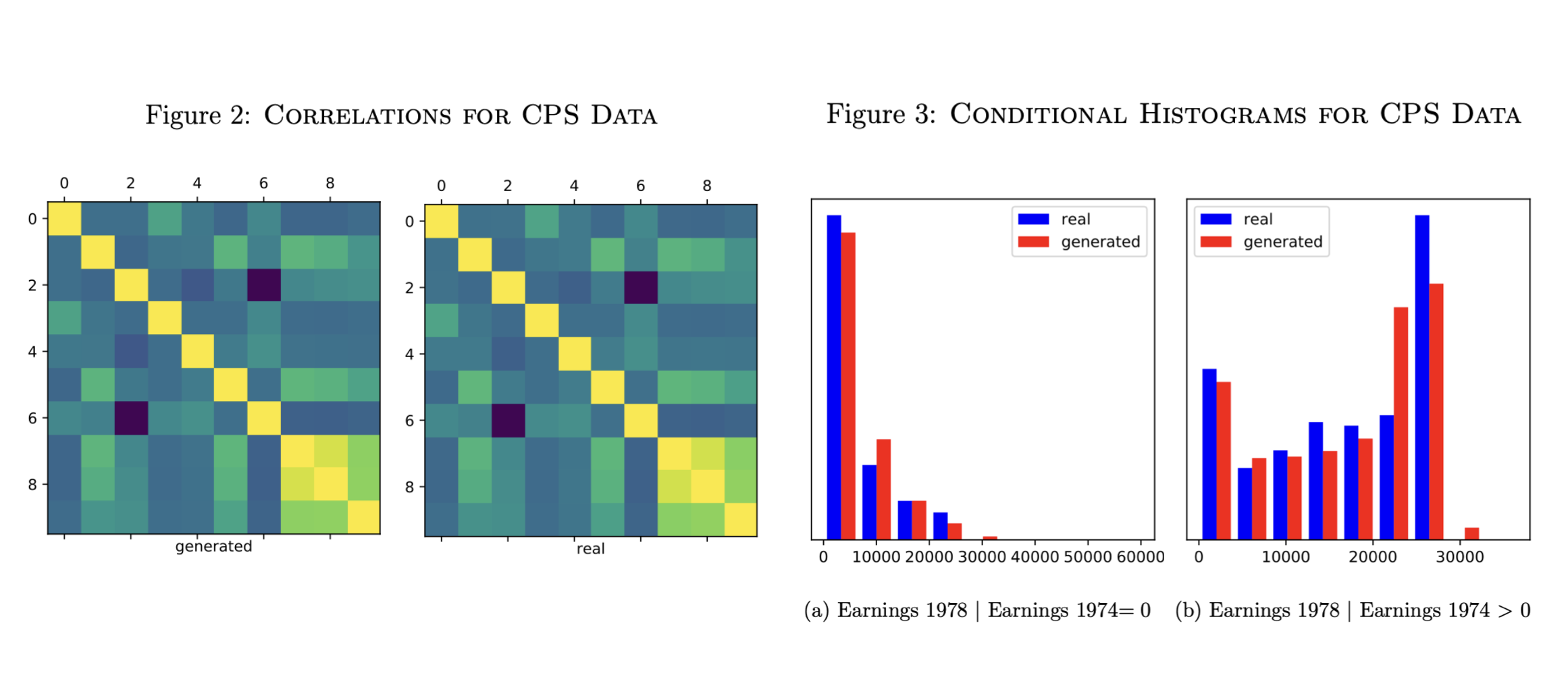
Using Wasserstein Generative Adversarial Networks for the design of Monte Carlo simulations
Objective benchmarks based on real-world datasets have been crucial for methodological progress in machine learning. These do not exist in causal inference, which aims to predict counterfactuals that are not observed in the data. Here, we show that GANs can be used to learn data generating processes which closely resemble real data in terms of observables, while containing the unobserved counterfactuals necessary to evaluate causal inference methods. We show how causal inference practitioners can use this approach to evaluate methodological progress, and to select appropriate methods for specific data sets.